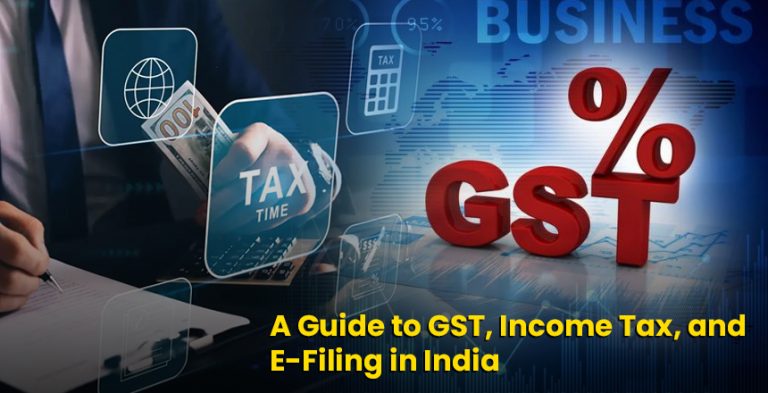The accounting world is changing in a slightly mysterious way. As automation and intelligent technologies continue to develop, the age-old practice in the field of accountancy where accountants would have to compute manually, work with logs, and mountains of paperwork is changing very quickly. Automation is not killing accountants out at all, but instead transforming their roles, making them afforded the opportunity to work more on strategic, analytical and advisory assignments, instead of repetitive data entry tasks. It is a paradigm shift in accounting, one that is technology based, efficiency based and value added based.
The Manual to Automated Accounting Shift
Accountants spent decades dealing with huge amounts of data, manually, bookkeeping, ledger entries, reconciliations, payroll, and tax filing. Such activities were usually rough and routine. With the introduction of digital accounting softwares and robotic process automation (RPA), it is possible to handle large proportions of such duties with little human input. The automation tools are capable of accessing bank feeds, matching transactions, and preparing financial statements and even sending invoices and even calculating tax, at a rate and precision level that no human could perform, provide. The elimination of manual labor in daily accounting functions has become very minimal through this change.
Automation and What it Means to the Daily Role of the Accountant
The accountants of today are no longer the number cruncher who is confined to the spreadsheets. Automation has raised the profession as accountants can conduct themselves in higher level areas. They no longer take hours out of their day to reconcile bank statements or to trace expense reports but instead they are spending their time reviewing the data, finding trends, providing financial reporting and influencing business strategy.
As another example, accountants can keep track of the cash flow, profitability and expenditure patterns of a company in real time by accessing data provided by automated tools. This simplifies the provision of proactive advice as opposed to reactive answers. The role of the accountant has changed to that of a financial analyst, a consultant and even a risk advisor. They are not supposed to record but to analyze data.
Important Technologies that are Promoting Automatic Accounting
This change in the world of accounting has a number of technologies associated with it. These include:
- Cloud Accounting Platforms: QuickBooks, Xero, Zoho Books, and TallyPrime are tools that can automate invoicing, expenses tracking, reconciliations, and reporting but now on cloud.
- Artificial Intelligence (AI): AI helps perform smarter analysis of data, fraud detection, pattern identification and even predictive analytics to plan ahead.
- Robotic Process Automation (RPA): RPA solutions can deal with mundane chores such as payroll, data transfer, and regulatory changes with no human intervention.
- Optical Character Recognition (OCR): With this technology, scanned receipts and documents are transformed into usable data, and they minimize the manual entry of data.
- Blockchain: This is in the early stages of development, blockchain offers a secure, real-time auditing; transparent financial transactions.
- These tools enhance efficiency as well as the accuracy and reliability of financial information required to make sound decisions.
The Rise of New Skills of the Modern Accountant
With the emergence of automation in place of routine work, the accountants will be needed to develop some new set of skills to ensure relevancy in this dynamic world. The need for data interpretation, strategic thinking, communication and tech-savviness has increased exponentially. Accountants have now to realise and comprehend the software they are dealing with, to interpret reports in a critical way, and to convey meaning to a non-financial stakeholder.
Financial modeling, forecasting, budgeting and business consulting have even become more popular skills. Moreover, it is essential to know the updates in tax regulations and market norms and data protection regulations.
Automation is not posing a threat to the profession, but it is enabling more and more accountants to upskill and pursue roles that are more effective and intellectually stimulating.
The ascendancy of the accountant as business advisor
With the further development of financial automating tools, companies seek advice not only on the books but also on matters of subsequent success and development to the accountants. The contemporary accountant is now being asked to:
- Assist in generating financial objectives and plans.
- Recommendation of investment and cost saving opportunities.
- Help in price models and analysis of profits.
- Direct decisions in the areas of funding, growth, and compliance.
This consultation involves more insight into the business than just the figures hence accountants form very important people in the top management team.
Advantages of Automation on Accounting Firms and Clients
Automation is good to both the accountants and the business they offer. In the case of accounting firms, automation saves overheads and improves efficiency and enables them to attend to a higher number of clients at the available resources. It boosts the turnaround time, increases client satisfaction and creates new service opportunities.
To the clients, automation entails transparency, timely reports, improved compliance, and much quicker decision making. Cloud tools enable small businesses, specifically, to keep up with the competition due to their affordable cost and big-business capabilities.
Issue and Consideration in the implementation of Automation
Although automation of accounting is very beneficial, there are pitfalls associated with it. To implement it, one will spend money on appropriate tools, personnel education, and potential reengineering of processes. It requires too strong measures of data security protecting sensitive financial data too.
Besides, excessive automation that lacks supervision may result in committing mistakes when systems are not adjusted correctly. To provide relevant and accurate financial data to end users, accountants have to ensure automation and human judgment.
The Embrace of the Future of Accounting
Yes, there is a valid role in saying automation is revolutionizing the accounting profession but not killing it or terminating it. Rather, it is the opening up of new opportunities, where accountants are made competitive in making them strategic partners in pushing business upwards. Accountants will succeed in a technological environment and bring more value to the organizations they work in by applying automation and constantly increasing their competencies.
With the changing position of the accountant, one thing will not change, and that is the necessity of belief, understanding, and money acumen. Now that numbers have been automated, accountants can do what they need to do best; come up with smarter financial solutions to assist a business to make smarter decisions.








